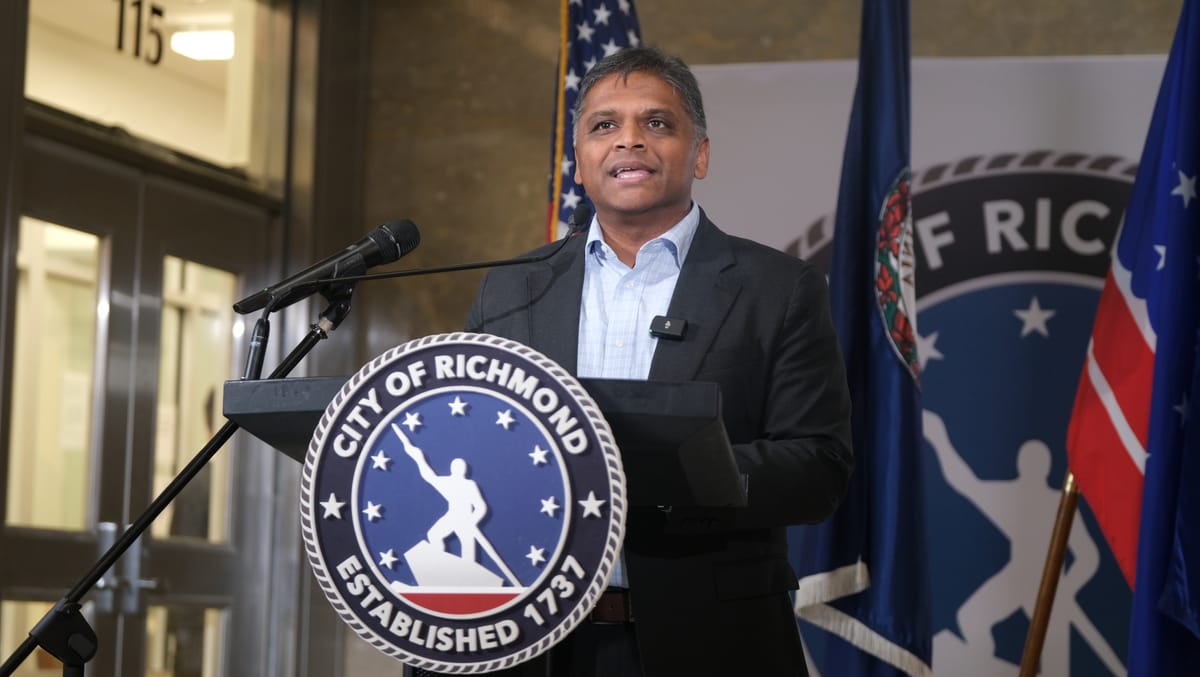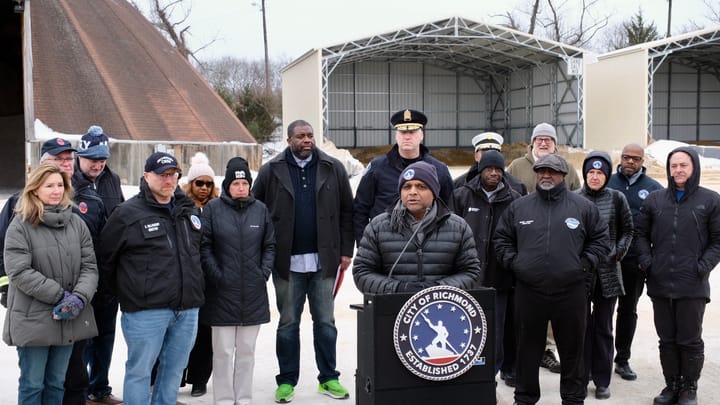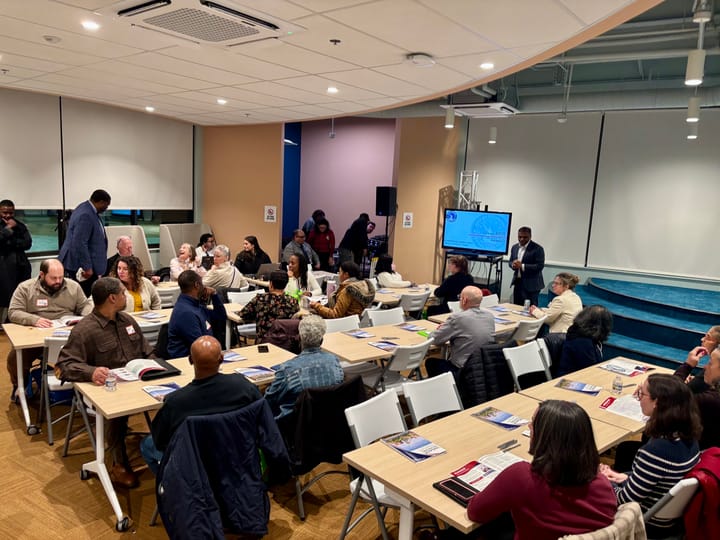Richmond officials are overhauling the city’s budget process. Here’s what could change

It's our birthday week! Will you help us reach our goal of finding 50 new members to support local reporting?
Richmond’s budget process would get longer and have more opportunities for input by City Council members and residents under a proposed overhaul of how the city crafts its yearly spending plans.
After several newer Council members criticized the process earlier this year as being overly rushed and leaving them little real power to make changes to a billion-dollar operating budget, city leaders created a task force to review the system and find ways it could be improved.
In recommendations revealed last week by both the Council and Mayor Danny Avula, the task force suggested extending the formal budget process by 16 days, requiring the budget to be introduced on March 11 next year. The current legally required submission date is March 27.
Before the formal budget process in March, the new timeline calls for a public kickoff event in September to hear about Richmonders’ concerns, a joint mayor-Council meeting in December with a neutral moderator to set “shared priorities” and a series of mayoral town halls in January and February to get more public input.
The earlier start is meant to give the Council more time to review the budget proposed by the mayor, hold public hearings to get resident feedback and go through a formal process of proposing amendments that would be easier for the public to see and track.
The budget is arguably the most important piece of legislation elected officials pass each year, setting funding levels for core municipal services like schools, parks and police. Through the budget, officials also decide how much to charge Richmonders in taxes and fees to pay for those services.
Because of the budget’s importance, it’s also a point of friction in the occasional power struggles between the Council, mayor and City Hall bureaucracy. Some Council members feel the system puts them in a position of having to sign off on a budget mostly written by the mayoral administration, with little to no ability to crunch their own numbers or make changes beyond tinkering with a few million dollars.
When the city adopted the budget process this year, the Council’s work was largely done on printed spreadsheets that weren’t always made available online for members of the public interested in keeping tabs on the process.
There were no formal votes on amendments, making it difficult to tell which Council members were backing or opposing specific budget proposals. Council members weren’t required to attach their names to potential budget cuts listed on the spreadsheets, which obscured who was proposing what. Even for journalists and staffers physically present in the Council chamber, the budget deliberations were at times hard to follow.
“Most importantly, I want to avoid chaos in this chamber,” Council Chief of Staff RJ Warren told members Tuesday as he outlined the revised process at a committee meeting. “So therefore you will not be thrown a bunch of paper and be expected to make decisions on it immediately.”
Council members were mostly enthusiastic about the proposed changes, some of which will need formal approval from the Council at a future meeting before they can take effect.
“It reflects the kind of thoughtful and strategic planning that gets us out of past processes,” Council President Cynthia Newbille said as the body received a rundown on the potential changes.
Councilor Kenya Gibson (3rd District) called for more of the new rules to be codified as formal policy instead of being treated as informal or unwritten protocols.
“Having the amendments be public is one of the most important things we can do as a body to bring more transparency to this process,” Gibson said.
In addition to the Council’s chief of staff, the task force members included Councilors Katherine Jordan (2nd District) and Ellen Robertson (6th District), Chief Administrative Officer Odie Donald II, Budget Director Meghan Brown, Avula Chief of Staff Lawson Wijesooriya and Avula Senior Policy Advisor Thad Williamson.
Avula spokesperson Mira Signer said the mayor is committed to “more authentic engagement from both the public and the City Council” during budget season.
“That’s why the joint budget task force launched and met over the summer, and the mayor is extremely pleased with its recommendations,” Signer said.
A debate over task force membership
The lack of involvement by more junior Council members was a sore spot for Gibson and Councilor Sarah Abubaker (4th District). As first-term members who were sharply critical of the old budget process when they experienced it for the first time, Gibson and Abubaker both said they could have been included in a task force created partly in response to their critiques.
In the future, Gibson said, the selection of task force members should be open to discussion, not something Council leadership decides on its own.
“I say this with utmost respect, but I do think that the elephant in the room is that the task force in this instance didn’t include the new members who I think were the most vocal about concerns with the budget process,” Gibson said.
Abubaker said it was “disheartening” not to be given the chance to participate in the task force. She also questioned whether moving up the submission deadline by 16 days will make a major difference without a broader culture shift to give more weight to Council input on the budget.
“If we continue to do the same thing over and over again but we put a different font or color on it, it is still the same problem,” Abubaker said.
Councilor Katherine Jordan (2nd District) reminded the new members they had joined the body during a transition to a new mayoral administration, and can now be involved in a full budget cycle from start to finish.
“This is going to be an evolving process,” Jordan said.
Should department budget requests be public?
Earlier this year, Councilor Stephanie Lynch (5th District) proposed a budget oversight measure that would require the city to publish every city department’s budget requests, as well as a side-by-side comparison of how those requests square with funding amounts in the mayor’s budget proposal.
That ordinance — which had the backing of six of nine Council members — was delayed for the entire summer to give the task force a chance to review it.
The review is now in. And the task force says it’s a bad idea.
Making departmental budget proposals public, the task force report said, could lead to “inflated budget requests” and department heads gaming the system to try to boost their chances of getting more money.
The task force also warned the proposal could make the mayor and his administration look bad.
“Administrative leadership might be unfairly criticized for making necessary financial decisions within budget constraints,” Warren, the Council chief of staff, said during his recap.
The mayor’s office also weighed in against the broad release of preliminary departmental budget estimates early in the process.
“Unfortunately, narrow conversations about issuing the raw department requests before mayoral review miss the point,” Signer said. “Doing so could politicize preliminary asks and undermine the charter’s charge to the mayor to deliver a clear, strategic and balanced budget.”
The recommendation to torpedo Lynch’s proposal didn’t go over well with some of the members supporting it.
Being fearful of how the public might interpret more in-depth budget information, Abubaker said, isn’t a compelling argument for blocking Lynch’s proposal because officials have the power to explain their budget decisions.
“That is our job as legislators and the mayor’s extensive communications team to communicate why changes may happen,” Abubaker said.
In an interview, Lynch said the task force’s opposition won’t deter her from pressing on with the proposal.
“It would give us incredible insight into what the individual departmental needs are,” Lynch said.
Lynch dismissed the concern that making departmental requests public could lead to budget-season shenanigans. She said the state government already treats that information as public for its departments without serious issues.
“I think it’ll bring rigor to the whole process,” she said.
Traditionally, the city has treated department budget requests as mayoral working papers, making them exempt from Freedom of Information Act requests filed by the Council or the public.
Signer confirmed that the city views department budget requests as FOIA-exempt, but said the mayor would “carefully weigh whether or not to invoke that exemption.”
Lynch’s proposal is set to be taken up at a Sept. 17 committee meeting.
Local officials are also working on two-other budget related reforms: A clearer formula for funding Richmond Public Schools and a more objective way to distribute public money to nonprofits for services the city doesn’t provide.
Contact Reporter Graham Moomaw at gmoomaw@richmonder.org
The Richmonder is powered by your donations. For just $9.99 a month, you can join the 1,000+ donors who are keeping quality local journalism alive in Richmond.






